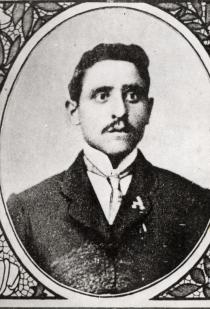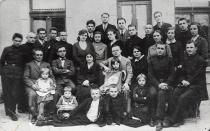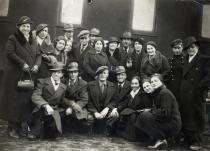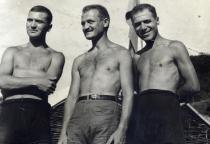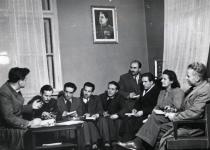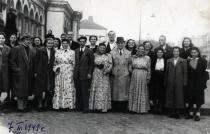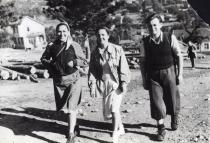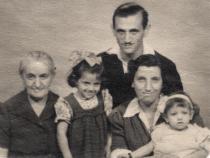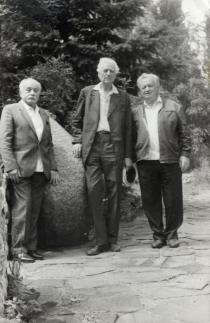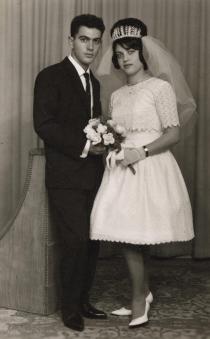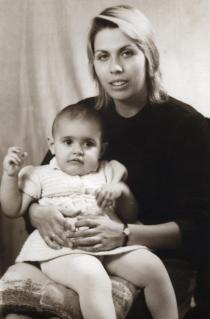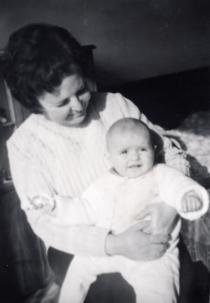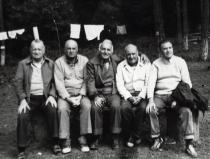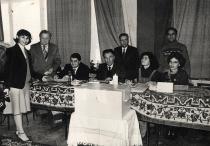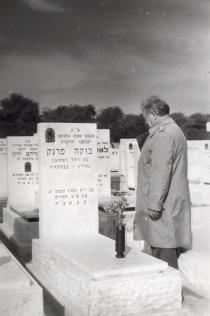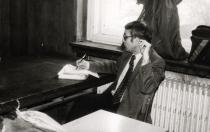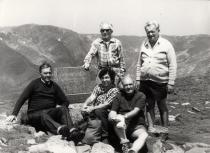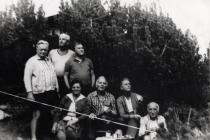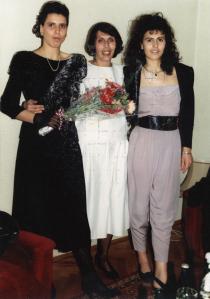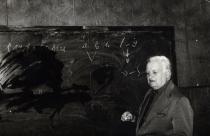This picture was taken in Sofia in 1949. At that time I was a director of 'Fortuna' textile factory. I am in the center of the picture with a bowler hat and a long mackintosh, the factory workers are standing around me. In the front some of the workers are presenting the textile patterns, from which we had created those wonderful clothes. Right at the moment of the photo we were about to go to a manifestation on the occasion of some national or official holiday.
Later, when I had problems because of my opinion on the production process, half of these people did not support me. The 'Fortuna' factory existed for some time but in the end it was closed and its modern machines were sold for scrap.
In the course of three years I was director of a large textile enterprise. Yet, a problem occurred, as a result of which I was fired. In the process of textile production there are strictly specific requirements. Water steam at fixed temperature is being used in order to dye the textile. There was a problem with this steam. So, in order to be economical, the enterprise started using steam at a lower temperature. Thus the coals used for preparation of the steam were economized.
However, I did not agree and protested against it, I even ordered on my own responsibility the steam temperature to be increased for the colors to be fixed better in the textile. Yet, this was considered by the higher circles of the Bulgarian Communist Party 12 to contradict the party’s policy and I was fired as a factory director, as well as expelled from the BCP.
In these times I was impressed by the fact that very often people with no professional experience and qualification were hired for leading positions in the production. They were former partisans and active anti-fascists. For example, in our enterprise a nice young girl was employed, who used to be a partisan for some years, she was awarded several times and was declared a hero. Therefore no one cared whether she was good at her work or not. This is only one example of the tendency that existed back then.
The case with the steam and me being fired illustrated the same idea. Some incompetent superior party official had decided just like that, that the textiles could be dyed with less steam and had ordered the coal deliveries to be lessened. My disapproval was interpreted as disapproval of the party’s policy. I was even subject to a trial for letting the steam out, but finally I was acquitted. In a year I was rehabilitated, my membership in the party was reinstated and I was offered a new job as a consultant.
There were textile enterprises in the light industry and I became instructor there. In the co-operatives there were textile enterprises, where I worked not as a chief but as an employee. Those were a kind of workshops, small factories. I have been a member of the party for nearly 60 years and I am still a member.

